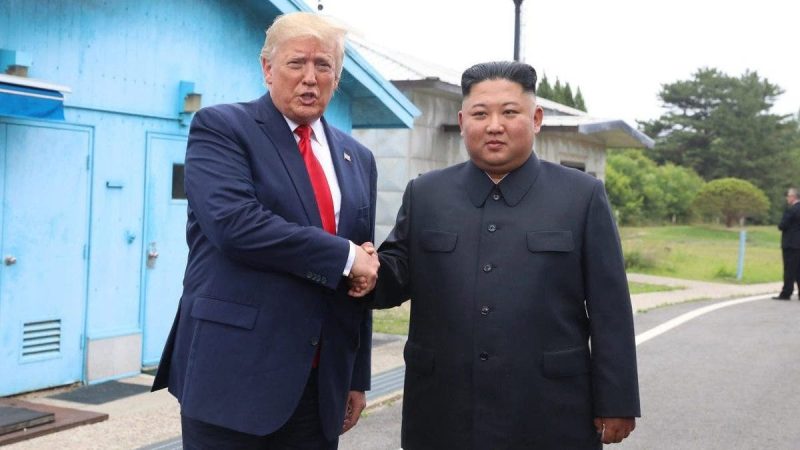In the fast-paced world of international diplomacy, befriending one’s adversaries can sometimes lead to unexpected outcomes. Such is the case with former U.S. President Donald Trump’s approach to North Korean leader Kim Jong Un. Despite widespread skepticism and criticism, Trump has maintained a seemingly friendly relationship with Kim, characterized by a series of high-profile summits and exchanges of personal correspondence.
While critics have raised concerns about the legitimacy and efficacy of Trump’s engagement with the reclusive regime, the former president has consistently defended his approach, arguing that diplomacy is always preferable to hostility. Indeed, Trump’s willingness to engage directly with Kim represents a departure from traditional foreign policy norms, which often prioritize pressure and sanctions over dialogue.
One of the central arguments in favor of Trump’s outreach to Kim is the potential for de-escalating tensions on the Korean Peninsula and reducing the risk of conflict. By establishing a personal rapport with Kim, Trump has sought to create an opening for constructive dialogue and negotiation, a stark contrast to the fiery rhetoric and threats that have historically characterized U.S.-North Korea relations.
Moreover, Trump’s engagement with Kim has also been framed as a strategic move to advance U.S. interests in the region. By leveraging his personal relationship with the North Korean leader, Trump has aimed to secure commitments on denuclearization and peace-building measures, an approach that has had mixed results but nonetheless reflects a willingness to explore unconventional pathways to achieving diplomatic goals.
Despite the potential benefits of Trump’s friendly relationship with Kim, critics have voiced concerns about the legitimization of a brutal dictatorship and the undermining of longstanding alliances with South Korea and Japan. The spectacle of Trump and Kim’s summits, marked by grand gestures and lofty promises, has raised questions about the substance and sustainability of their engagement, particularly in light of North Korea’s continued development of its nuclear arsenal.
In the complex world of international politics, the intersection of personal relationships, national interests, and historical grievances can complicate efforts to navigate diplomatic waters. Trump’s embrace of Kim Jong Un as a friend reveals the complexities and contradictions inherent in modern diplomacy, where the pursuit of peace and security must be balanced against the imperatives of realpolitik and the demands of domestic constituencies.
In the end, the true impact of Trump’s friendly relationship with Kim Jong Un remains to be seen, with the long-term consequences of their engagement likely to shape the future of U.S.-North Korea relations for years to come. Whether viewed as a bold experiment in diplomacy or a dangerous flirtation with tyranny, Trump’s approach to engaging with Kim reflects the unpredictable and high-stakes nature of international politics in the 21st century.


































